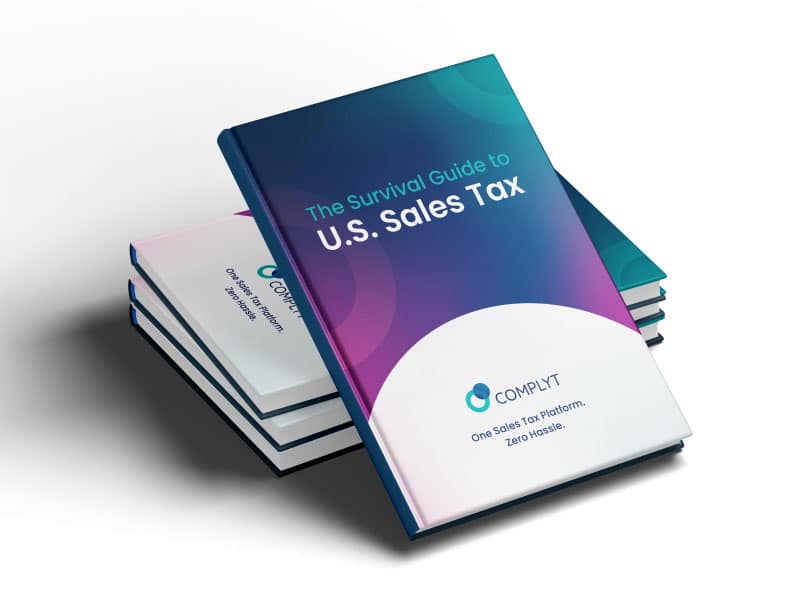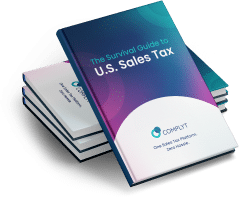What is the sales tax rate in New Hampshire?
New Hampshire is one of the few states in the U.S. that does not impose a state-wide sales tax on the sale of most goods and services. It’s one of the reasons why many shoppers, particularly from neighboring states, visit New Hampshire to take advantage of the sales tax-free shopping experience.
However, there are a few exceptions to this rule.
New Hampshire imposes taxes of up to 9% on certain specific products and services such as meals and rooms, motor vehicle rentals, and telecommunications services.
It’s important to note that while the state does not have a general sales tax, municipalities in New Hampshire have the authority to impose their local taxes. As of now, no municipalities have chosen to do so.
When should your business collect Sales Tax in New Hampshire?
Given that New Hampshire does not have a general sales tax, most businesses operating within the state are not required to collect sales tax on their sales.
However, if your business sells or provides one of the few products or services that are subject to tax in New Hampshire (like meals, room rentals, or telecommunications services), then you must collect the appropriate tax.
Businesses selling taxable goods or services are required to register with the New Hampshire Department of Revenue Administration (NHDRA) and obtain a Meals and Rooms (Rentals) Tax License or a Communications Services Tax License.
New Hampshire Physical Sales Tax Nexus
A physical presence or nexus in New Hampshire does not trigger a sales tax collection requirement for most businesses, as the state does not have a general sales tax.
However, having a physical presence in New Hampshire could potentially create a nexus for other taxes like the Business Profits Tax (BPT) or the Business Enterprise Tax (BET). These taxes are beyond the scope of this guide, but it’s crucial to be aware of them if you’re conducting business in New Hampshire.
Sales Tax Physical Nexus checklist for New Hampshire
Even though a physical nexus doesn’t impact sales tax collection in New Hampshire due to the lack of a general sales tax, it’s still essential to understand what constitutes a physical presence. The following are some factors that typically establish a physical nexus:
- Having an office, warehouse, or other business location in the state
- Employing workers in the state
- Storing inventory in the state
- Holding events or meetings within the state
Keep in mind that having a physical nexus in New Hampshire could have implications for other state taxes. Therefore, businesses should consult with a tax professional to understand their specific tax obligations in New Hampshire.
New Hampshire Economic Nexus Threshold: Revenue, Thresholds, and Transactions
In 2018, following the U.S. Supreme Court decision in South Dakota v. Wayfair, New Hampshire passed legislation that would require out-of-state sellers to provide notice to consumers of their use tax obligation on sales made to customers in the state. However, this legislation is currently on hold due to legal challenges.
Additionally, since New Hampshire does not impose a general sales tax, the economic nexus thresholds and rules applied in other states are not applicable here. Out-of-state sellers should be aware of their obligations under the specific taxes that New Hampshire does impose, such as the Meals and Rooms (Rentals) Tax or the Communications Services Tax.
Which services are taxable in New Hampshire?
In New Hampshire, most services are not subject to sales tax, consistent with the lack of a general sales tax. However, there are a few specific services that are taxed:
- Meals: Taxed at a rate of 9%.
- Rooms (Rentals): Taxed at a rate of 9%.
- Communications Services: Taxed at a rate of 7%.
Is there a New Hampshire clothing tax?
No, New Hampshire does not have a sales tax on clothing or any other products, making it an attractive shopping destination for residents of neighboring states.
New Hampshire Online Sales Tax: Are SaaS Sales Tax New Hampshire and Digital Service Tax a Concern?
New Hampshire does not tax SaaS or digital services as it does not impose a general sales tax. Businesses providing these services to customers in New Hampshire do not need to collect sales tax. And in light of the lack of a statewide sales tax rate, it seems unlikely that New Hampshire SaaS sales tax will become a concern in the near future.
How can a business get a sales tax permit in New Hampshire?
Since New Hampshire does not impose a general sales tax, most businesses do not need to obtain a sales tax permit. However, if your business sells or provides services subject to specific taxes, such as meals, room rentals, or telecommunications services, you must register with the NHDRA and obtain the appropriate tax license.
Collecting Sales Tax in New Hampshire as a Business
If your business sells or provides services that are specifically taxed in New Hampshire, such as meals, room rentals, or communications services, you are required to collect the appropriate tax from your customers. Here’s how you can do it:
Determine if you are providing a taxable service: Only specific services are taxed in New Hampshire, including meals, room rentals, and communications services.
Register with the New Hampshire Department of Revenue Administration (NHDRA): You’ll need to register and obtain the appropriate tax license if you are providing a taxable service.
Collect the tax: Collect the applicable tax (9% for meals and room rentals, 7% for communications services) from your customers at the point of sale.
Record and document your sales: Keep accurate records of all your taxable sales and the tax collected.
File your tax returns: File your tax returns as required by the NHDRA, usually monthly or quarterly, depending on your specific tax type and business size.
Remit the collected tax: Pay the tax you’ve collected to the NHDRA by the due date.
New Hampshire Tax Return Due Dates Explained
The due dates for filing tax returns in New Hampshire depend on the specific tax type:
Meals and Rooms (Rentals) Tax:
- Monthly filers must file by the 15th day of the month following the taxable period.
- Quarterly filers must file by the last day of the month following the taxable period.
Communications Services Tax:
- Monthly filers must file by the 15th day of the month following the taxable period.
- Quarterly filers must file by the last day of the month following the taxable period.
What is the required frequency for sales tax returns in New Hampshire?
The frequency for filing tax returns in New Hampshire depends on the specific tax type and the volume of your sales:
Meals and Rooms (Rentals) Tax:
If your tax liability is $600 or more in a taxable period, you must file monthly. Otherwise, you can file quarterly.
Communications Services Tax:
If your tax liability is $600 or more in a taxable period, you must file monthly. Otherwise, you can file quarterly.
One thing that becomes all too clear when traversing the New Hampshire tax landscape is that compliance isn’t necessarily simplified when there isn’t a statewide sales tax rate, especially not for a few select businesses who do indeed have to continue collecting and remitting sales tax on their services. So instead of trying to monitor your filing frequency or manage your transaction documentation manually, why not let Complyt automate every step for you? Book your demo today.

